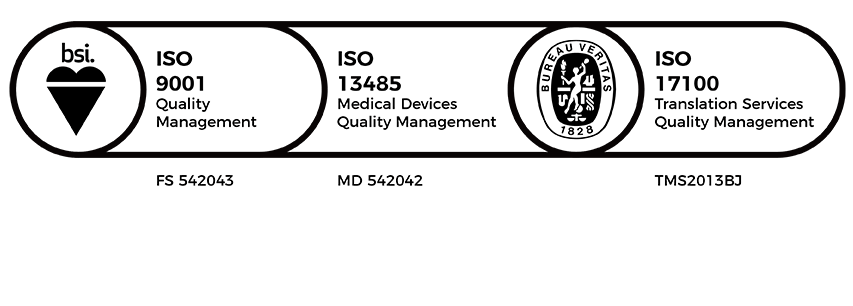Multilingual SEO Translation Services
Optimizing web content to drive traffic from global audiences through multilingual SEO and website translation services
Search engine optimization, commonly known as SEO, is an important marketing tool that brands rely on to increase the amount of traffic coming to their websites. SEO provides brands with the biggest area of opportunity to enhance the performance of multilingual website translations. To improve SEO results for website translation, organizations often create and optimize content such as blogs by strategically using keywords and linking to relevant websites. Additionally, they keep their websites updated with relevant content in all key languages. At its core, SEO website translation involves understanding what audiences in each target market are searching for and tailoring content to match their search behaviors, language preferences, and cultural expectations. In a more comprehensive approach, multilingual SEO integrates on-site, off-site, and technical SEO practices, increasing the likelihood of ranking well in targeted search channels.
For businesses competing in global markets, multilingual SEO website translations for online brands are necessary to localize products and services for overseas consumers. As a leading provider of translation and localization services in over 250 languages, CSOFT can help companies develop and optimize their online content for audiences in different languages, enabling them to gain traction for their offerings.
Why Multilingual SEO is Critical for Global Success
Expanding into new regions means reaching new audiences with unique search habits, preferences, and cultural nuances. A standard translation won’t guarantee that your content ranks on search engines like Google, Baidu, or Yandex. CSOFT’s multilingual SEO translation services make sure your website is optimized in each language, considering regional search trends and user behaviors. This approach drives organic traffic, enhances visibility, and ultimately increases conversions from international markets.
Multilingual Website Translation: SEO Essentials
Domain and URL Structure
In the United States, the most common and credible domain for all commercial websites is “.com,” while educational institutions, government bodies, and nonprofit organizations are denoted with “.edu,” “.gov,” and “.org,” respectively. However, these standards vary greatly from country to country. For example, the equivalent of “.com” in Germany is “.de.” Additionally, there are different formats involved in pinpointing a domain. ccTLD, for example, refers simply to changing the “.com” to “.de.” On the other hand, subdomains keep the last four characters intact but change the beginning of the URL as required for the market. For example, in “de.site.com” or “fr.site.com”. This is important to consider when expanding to a global market, as having the most common and familiar domains grows brands’ credibility and searchability.
Keywords
A crucial step to successful multilingual SEO website translation is identifying the common keywords and key phrases consumers or clients will likely use when searching for your product or service. Potential customers often lack in-field sophistication or expertise, so it is important to make your content as accessible and searchable as possible using familiar, local terms. Additionally, in-country linguists can ensure effective targeting of specific populations by including cultural nuances, key phrases, and region-specific terms or expressions.
Learn more about CSOFT’s search terms translation services.
Hreflang Tags
Hreflang tags are indications that search engines use to determine both the language that a multilingual website translation is in and its intended region. For example, on a page intended for a UK audience, a hreflang tag on the site map indicating “en-gb” will correctly inform the search engine where the target audience is located, their language, and where it should prioritize hits from a search.
Support from Professional Linguists
Every language is unique, complex, and dynamic, changing suddenly and sometimes steadily over time. When implementing SEO website translation, experienced native linguists and in-country subject matter experts are essential to ensure the up-to-date linguistic and cultural appropriateness of your content.
Multilingual SEM: Boosting Paid Online Search Results
Regarding online marketing to various countries and regions, the search engine results page (SERP) battleground depends on a few key factors, with one aspect being multilingual search engine marketing (SEM). One of the most effective ways to grow a business and reach new customers, SEM for international audiences requires translation, localization, and, in some cases, transcreation to satisfy search engine requirements and to find and captivate possible buyers. Localization services for SEM allow businesses with international customer bases to get the biggest bang for their buck by adapting the original language used in their keyword, key phrase list, and digital ad campaigns so there is maximum traction, and all target demographics can feel and become engaged.
Learn more about our SEM localization services.

Quality Assurance
Professional, high-quality localization of a service or product is critical for translation solutions in global markets. CSOFT understands the importance of accurate translation, which is why we have developed a process for quality assurance to ensure that any translated project meets quality standards promptly and is also cost-effective. Our advanced translation technology management system allows translation projects to remain in one centralized location, updated in real-time, to ensure that CSOFT has you covered every step. Additionally, we are certified in ISO 17100:2015, ISO 9001:2015, and ISO 13485:2016, ensuring our customized solutions meet global regulatory requirements and our clients’ highest expectations for quality.
Learn more about our quality assurance processes.
Data Security
CSOFT has meticulously documented and fully traceable information security policies, checklists, and quality records. We understand the importance of security to our clients, which is why we take the utmost care in protecting patients’ confidentiality and businesses’ data. All our data security processes leverage best practices from ISO 27001, ensuring we adhere to the latest international standards in information security.
Learn more about CSOFT’s data security procedures.
Speak to us today!
For more information on how CSOFT can assist you with your translation requirements, please contact us through this website or at +1-617-263-8950.
Are you conducting a translation RFP or tender? We love RFPs.



